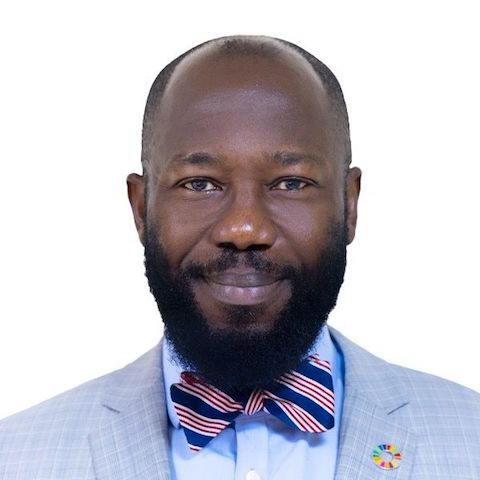
The future of education is not just in infrastructure or innovation, as vital as those are. It lies in how a society cultivates the inner life, how it teaches its people, from childhood, to sit with complexity, to ask questions, to listen for meaning beyond noise. In an age of algorithms and instant answers, reading remains one of the last forms of sustained attention we have left. A society that does not read cannot dream collectively; it loses the imagination needed to govern wisely, to create boldly, to disagree without violence.
As Nigeria pursues long-overdue reforms in classrooms, connectivity, and human capital investment, we must also reckon with a quieter but more enduring challenge, namely our diminishing relationship with books, and the gradual erosion of reading as a cultural habit, a form of self-formation, and a gateway to deeper thinking. It is in this widening gap, between what we build and what we nurture, that the loud silence around reading in Nigeria becomes most deafening.
Books are still seen by many as an academic requirement rather than a personal or societal asset. Reading, for too many children, and indeed adults, is something one must endure to pass an exam, not a practice to be nurtured, enjoyed, or claimed. In this, the crisis is not just educational. It is cultural.
One cannot reform education without reforming the place of books in daily life. This is not simply about publishing policy or school libraries. It is about how families engage with books, how parents model curiosity, and how communities respond to the slow work of building minds. That work does not begin with devices or tests. It begins with attention — what we give it to, and what we take it away from.
At one of Nigeria’s airports recently, I saw two children sitting at a boarding gate, calmly reading. Real books. Not screens. Not devices. Just reading. It was striking and rare. When I approached their mother to express my admiration, she replied, almost matter-of-factly, “I just made books a normal part of their lives.” She had made that choice, which has, with repetition, become a habit.
When I asked the children if they were thankful to their mom for encouraging the habit, the boy, confident and clear, said, “It’s not my mom. It’s me. I’ve loved reading since I was born.” I smiled and asked, “Who buys the books?” “My mom,” he answered without hesitation. And with that, the story was complete.
It was a simple moment, but it stayed with me. It reminded me that the reading culture we often long for doesn’t begin with national campaigns or school policies. It begins in small, consistent acts comprising in what parents normalise, what teachers reinforce, and what society rewards. A child’s relationship with books is shaped long before exams, syllabi, or report cards come into view.
The value of reading has long been recognised across civilisations. Ancient scholars regarded books as vessels of wisdom. Cicero called a home without books “a body without a soul.” In our own religious traditions, both the Bible and the Qur’an are revered as not just texts, but pathways to enlightenment. In many Nigerian households, children are raised to memorise verses and recite chapters of Holy Texts from an early age — an extraordinary display of discipline and intellectual memory.
It is tempting to place the blame solely on social media and digital distractions, and no doubt, they have compounded the problem. But Nigeria’s reading crisis predates the digital age. The decline began long before smartphones; it began when books stopped being present in our homes, our conversations, and our sense of what matters.
The value of reading has long been recognised across civilisations. Ancient scholars regarded books as vessels of wisdom. Cicero called a home without books “a body without a soul.” In our own religious traditions, both the Bible and the Qur’an are revered as not just texts, but pathways to enlightenment. In many Nigerian households, children are raised to memorise verses and recite chapters of Holy Texts from an early age — an extraordinary display of discipline and intellectual memory.
And yet, outside sacred settings, we have not allowed that reverence to shape our general culture of reading. We memorise holy texts, but we do not often read for meaning. We honour the written Word in prayer, but we abandon it in everyday life. We treat those Books as spiritual tools, but not as instruments for self-discovery, nation-building, or global understanding.
This dissonance has consequences.
There is a quote, often attributed, perhaps apocryphally, to Carter G Woodson, that says, “If you want to hide something from a Black man, put it in a book.” It was never meant as a curse, but as a provocation — a painful mirror held up to systems that once denied (black) people access to literacy and the tools of thought. But if we are to reclaim our narrative, we must also reject the permanence of that quote. It need not define us. It should awaken us. Because the power to reverse it lies not just in policy, but in parenting, in community, and in a culture that teaches reading not as punishment, but as possibility.
Philosophers have long warned of such decline. Descartes believed that reading deeply, especially books written in earlier centuries, was akin to engaging in conversation with the greatest sages of all time. Simone Weil crystallised it, “Attention is the rarest and purest form of generosity.” And what is reading, if not the cultivation of attention over time? At its best, reading stretches the soul. It slows us down so we can think clearly, connect widely, and choose wisely. When a society loses the habit of reading, it does not merely fall behind, it begins to forget what it means to be fully human.
Nigeria’s current education reforms, particularly those being advanced by the Universal Basic Education Commission (UBEC), recognise this foundational gap. Through initiatives like the Smart Schools Programme, digital learning hubs, and HOPE-EDU, UBEC is helping to rebuild the ecosystem around basic education. More than 50 Smart Schools have been commissioned; over 18,000 public schools are receiving support, among other laudable initiatives. These are important steps.
We can start by making books normal again, in our homes, in our pulpits, in our classrooms, in our public spaces. Because where books are absent, shallow thinking takes over. And when shallow thinking dominates, even the best policies falter… The rest will only follow if we first make reading matter. Not just for tests. But for life.
But even the best reforms will struggle to take root in a society that does not actively value reading beyond the classroom. A national reading culture cannot be outsourced to government alone. It must be echoed in homes, sustained by communities, and reinforced by institutions, from religious centres to local media.
And yet, how many state governments can point to functioning, accessible public libraries? How many churches or mosques preach the importance of reading — not just Scriptures, but literature, history, philosophy, and thought? How many communities actively nurture curiosity as a virtue or build libraries?
It is worth asking, too, what the unfinished headquarters of the National Library of Nigeria says about our national priorities. Construction of the building began in 2006, yet till this day, it is still not fully functional. In the early years of Abuja’s development, the National Mosque and the Ecumenical Centre rose quickly — symbols of faith and moral authority. But nearly two decades later, the very institution that should stand as a temple of knowledge, civic memory, and intellectual pride remains under scaffolding. What message does that send to our children?
The future of education is not just in infrastructure or innovation, as vital as those are. It lies in how a society cultivates the inner life, how it teaches its people, from childhood, to sit with complexity, to ask questions, to listen for meaning beyond noise. In an age of algorithms and instant answers, reading remains one of the last forms of sustained attention we have left. A society that does not read cannot dream collectively; it loses the imagination needed to govern wisely, to create boldly, to disagree without violence. It cannot build with care because it no longer remembers how to think slowly. And without that, even the most sophisticated reforms will fail to reach the human spirit they were designed to serve.
We can start by making books normal again, in our homes, in our pulpits, in our classrooms, in our public spaces. Because where books are absent, shallow thinking takes over. And when shallow thinking dominates, even the best policies falter.
The rest will only follow if we first make reading matter. Not just for tests. But for life.
Chinedu Moghalu is the senior special adviser on Strategic Communication, Stakeholder Engagement and Advocacy to the Coordinating Minister of Health and Social Welfare.
Support PREMIUM TIMES’ journalism of integrity and credibility
At Premium Times, we firmly believe in the importance of high-quality journalism. Recognizing that not everyone can afford costly news subscriptions, we are dedicated to delivering meticulously researched, fact-checked news that remains freely accessible to all.
Whether you turn to Premium Times for daily updates, in-depth investigations into pressing national issues, or entertaining trending stories, we value your readership.
It’s essential to acknowledge that news production incurs expenses, and we take pride in never placing our stories behind a prohibitive paywall.
Would you consider supporting us with a modest contribution on a monthly basis to help maintain our commitment to free, accessible news?
TEXT AD: Call Willie – +2348098788999





